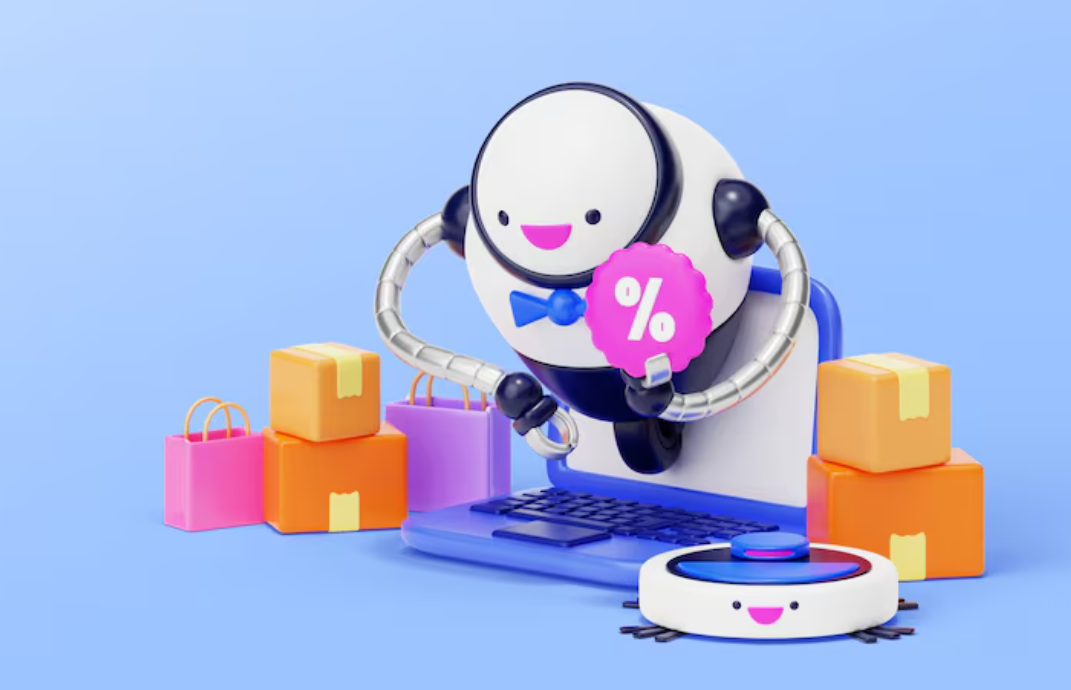

In today’s hypercompetitive eCommerce world, customers are bombarded with choices. They can browse hundreds of stores selling nearly identical products, all competing on price, speed, and convenience. But what truly makes a difference — what keeps a visitor from leaving your store in seconds — is relevance. Shoppers want to feel understood. They want your store to “get” them. That’s where AI-powered personalization comes in.
On Shopify, artificial intelligence is no longer just a futuristic concept. It’s a real, accessible tool that allows merchants of all sizes to deliver tailored shopping experiences automatically — without hiring massive data teams or writing a single line of code. From personalized product recommendations to dynamic content and predictive upsells, AI is helping smart Shopify stores sell more with less effort.
This article will explore how AI personalization works, why it’s becoming a must-have for modern eCommerce, and how you can use it to grow your Shopify store effectively.
Personalization used to mean adding a customer’s name in an email or remembering their last order. Today, it’s far more sophisticated. With artificial intelligence, personalization becomes dynamic, data-driven, and predictive.
AI analyzes customer behavior, purchase patterns, browsing history, demographics, and even micro-interactions on your site — then uses that information to deliver content or product suggestions in real time. The beauty of this system is automation: once set up, it continuously learns, improves, and adapts to new customer behavior without manual input.
For Shopify store owners, this means:
In short, AI personalization transforms your store from being a static catalog into a living, responsive experience that feels unique to every visitor.
AI personalization on Shopify operates through algorithms that continuously process data about your customers’ behavior. These algorithms learn from every click, search, and purchase to deliver relevant experiences at scale.
There are three main layers to how this process works:
The result is a Shopify store that feels intelligent — one that automatically knows what to display, when to display it, and to whom.
AI personalization isn’t just about showing different products to different people. It can enhance every step of the customer journey. Let’s explore the most common use cases that Shopify merchants are using successfully today.
AI analyzes what products a visitor is browsing and instantly recommends related or complementary items. For example:
Tools like Shopify Magic, LimeSpot, or Recom.ai automate this process, dynamically displaying products most likely to convert based on user activity.
AI can adjust your homepage banners, featured products, and messages depending on who visits. A first-time visitor might see a welcome discount, while a returning customer might see their favorite category front and center.
AI-driven search tools like Searchanise or Klevu improve Shopify’s native search by interpreting user intent. Typing “red running shoes” instantly filters by color, type, and size — leading to faster, more relevant results.
With AI integrations in tools like Klaviyo or Shopify Email, you can automate campaigns based on behavior predictions. AI determines when someone is most likely to open an email, which products to highlight, and how to phrase the subject line for maximum engagement.
AI-powered apps automatically identify customers who abandoned their carts or viewed products multiple times and retarget them with the right message. These can appear through popups, push notifications, or social ads.
In short, AI personalization covers every touchpoint — from browsing and checkout to post-purchase follow-up — ensuring that every interaction feels natural and individually crafted.
The benefits of AI personalization extend far beyond conversions. It redefines how your business operates, creating smarter systems that save time and resources.
Here are some key benefits:
The result? AI allows you to scale personalized experiences once only available to big brands — now available to anyone running a Shopify store.
Why does AI personalization work so effectively? The answer lies in psychology. Human beings crave recognition. When shoppers feel like your store understands their preferences, they’re more likely to buy and less likely to switch to competitors.
There are a few psychological principles at play:
AI amplifies these psychological triggers automatically, ensuring that every visitor feels seen and valued — without any extra effort from you.
Shopify’s ecosystem offers plenty of tools that make personalization easy — even for beginners. Here are some of the most trusted and widely used apps today:
The key to choosing the right tool lies in your business size and goal. Small to mid-sized Shopify merchants can achieve significant improvements with apps like LimeSpot or ReConvert, while large brands may benefit from advanced platforms like Dynamic Yield.
Getting started with AI personalization doesn’t have to be overwhelming. Here’s a practical roadmap for Shopify store owners:
Decide what you want to achieve — higher AOV, fewer abandoned carts, or more repeat purchases. Clear goals help you pick the right tools and metrics.
Select an app from Shopify’s App Store that fits your goals. Many offer free trials, so you can experiment before committing.
Install the app, sync your product catalog, and connect it with your Shopify customer data. Most modern apps require minimal setup and automatically start learning from your traffic.
Begin by personalizing one area — such as product recommendations or email automation — instead of overhauling your entire store.
Use Shopify Analytics or the app’s built-in dashboard to monitor conversion rates, click-through rates, and revenue per visitor. The AI will refine its models as more data comes in.
Once you see consistent improvements, expand personalization to your homepage, checkout process, or loyalty program. The more data the system has, the better it performs.
While AI personalization is powerful, it can backfire if implemented poorly. Here are some pitfalls to avoid:
By staying strategic and ethical, you can create a personalized experience that builds trust and long-term loyalty.
As AI continues to evolve, personalization will move beyond product recommendations. Soon, Shopify stores will leverage predictive personalization at every stage: forecasting trends, optimizing inventory, automating support responses, and even generating entire store layouts dynamically based on customer profiles.
We’re entering an era where your Shopify store could learn from every interaction — becoming smarter, faster, and more profitable over time. Merchants who adopt early will gain a significant advantage, as personalization becomes not just a feature, but a baseline expectation for modern consumers.
AI personalization has changed the way Shopify stores sell. It turns data into intelligence, intelligence into automation, and automation into growth. By leveraging AI tools, merchants can deliver meaningful, personalized experiences that feel effortless — for both the store owner and the customer.
The best part? You don’t need a data scientist to make it happen. Whether through Shopify Magic or third-party apps, AI personalization is accessible, scalable, and transformative. It helps your store anticipate needs, connect emotionally, and sell smarter — all while saving you time.
In a digital marketplace where attention is scarce and expectations are high, personalization isn’t optional anymore — it’s the future of eCommerce. And AI is what makes that future possible, today.


Social proof only works when it feels like a natural reflection of real customer behavior, not a marketing trick. This article breaks down how to use social proof in a way that feels genuine, credible, and persuasive, without ever crossing into “fake” territory.
This guide breaks down how to write product page headlines that don’t just sound good, but actually move shoppers closer to buying.
Ethical CRO is not about rejecting optimization or persuasion altogether. Instead, it’s about redefining how conversions are achieved, by prioritizing transparency, respect, and long-term trust over quick wins. In this article, we’ll explore what Ethical CRO truly means, why it has become essential in modern digital marketing, and how businesses can apply it without sacrificing results.